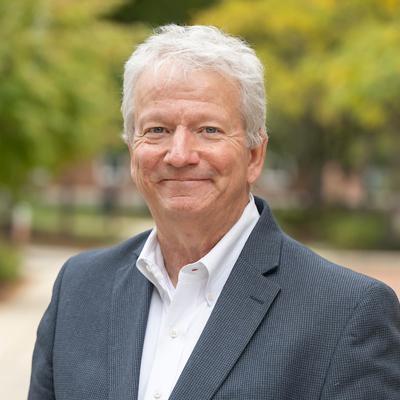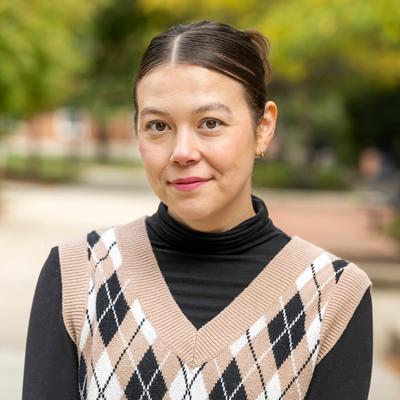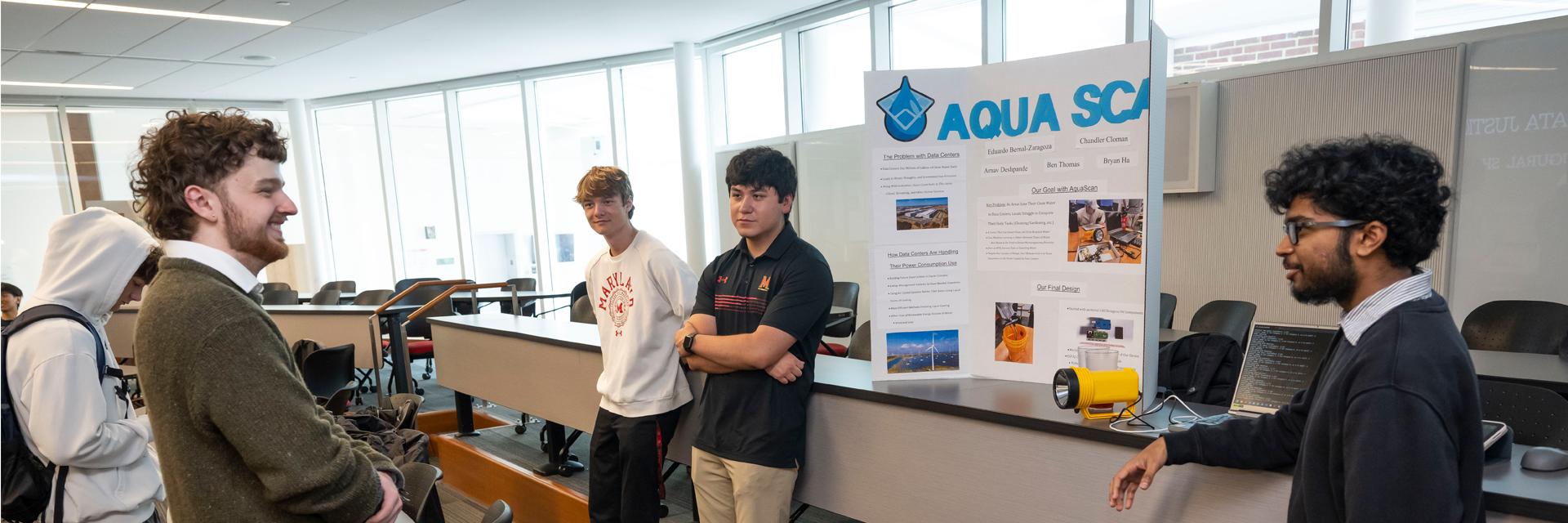Data Justice
Information, analytics and computing for social change
Introduction
Data Justice (DJ) provides students an opportunity to interrogate the biases that are built into information collection, design, and analysis. Students explore how specific values are coded into datasets, algorithms, AI-driven systems, machine learning models, and other sociotechnical systems. They gain advanced data-related skills that will serve them in a wide variety of careers that aim to make the world a better place through information.
By the conclusion of the program, students will be able to:
- Employ justice-centered approaches to equitable computer and data sciences;
- Analyze how cultural values, power, and privilege are encoded into technologies;
- Critique the sociopolitical values of data structure and algorithmic design;
- Analyze ways that computing and data science have been used as a catalyst for positive social change; and
- Develop a computing identity that intersects with personal identity factors.
DJ Scholars enters its second academic year in 2025-26. The program is sponsored by the University of Maryland’s College of Information, a top-ranked research and teaching college in the field of information science.
In the College of Information, faculty, staff, students, and partners are expanding the frontiers of how information and technology are accessed and used in a rapidly evolving world. We are combining principles of information science with cutting-edge technology to foster access to information, improve information interfaces, and expand how information is used in an evolving world.
Throughout all of our endeavors, the College of Information is committed to utilizing information and technology for good – to connect communities, empower individuals, and create opportunities.
Colloquium and Lecture Topics
- How do you use information?
- What is the info you need to change the world?
- What has produced the digital divide?
- How are digital identities different from personal identities?
- How can we achieve information justice?
The Data Justice program will be an excellent opportunity for undergraduate students interested in information science, computer science, the social sciences, journalism, business, policy, and more.
Other Learning Opportunities
In addition to colloquium and supporting courses, DJ students will choose three 1-credit electives from a group of courses focused on building technical computing and data science skills. Course titles include:
- Making Twitter Bots
- Solving Puzzles and Riddles with Computation
- Comic Books and Machine Learning
- Emergent Experiences through Technology
Off-campus excursions to information-related sites, such as the Library of Congress, the National Archives, and the Agricultural Library in Beltsville, MD, will foster community and encourage examination of information in the community (in physical location, cyberspace, and institutions created for the management and best use of information).
Curriculum Overview
Data Justice is an 15-credit program that includes a required course on algorithmic bias (INST204S); a series of colloquium courses on the topics of the digital divide, digital identities, and information justice; a set of supporting courses drawn from the College of Information’s 100- and 200-level courses on relevant current issues; a set of short supporting courses focused on technical computing and data science skills; and a practicum (CPDJ240 Service Learning) in which students will undertake a project with a community partner related to data justice.
The following table represents a typical two-year curriculum, but individual schedules will vary. Details about courses and requirements can be found on the Data Justice Citation Checklist.
| SEMESTER | COURSE | CREDITS |
|---|---|---|
| Semester 1 | CPDJ 100: Colloquium I | 1 credit |
| INST204S: Designing Fair Systems (DSHS, SCIS) | 3 credits | |
| Semester 2 | CPDJ 101: Colloquium II | 1 credit |
| Semester 3 | CPDJ 200: Colloquium III | 1 credit |
| Semester 1, 2, 3, or 4 | INST 388: Maker Movement INST 388: Maker Movement INST 388: Maker Movement |
1 credit 1 credit 1 credit |
| Semester 1, 2, 3, or 4 | Supporting Course (var. Gen Ed) | 3 credits |
| Semester 4 | CPDJ 240: Service-Learning Practicum | 3 credits |
Sponsoring College
Office Address
1101 Centreville
Office Phone
TBD
Faculty


News and Notes, Etc.
JLT Director Organizes Crimmigration Conference
Students and academic scholars examined the convergence of criminal defense and immigration law at the third annual Crimmigration Conference on Oct. 6-7. The Crimmigration Conference is sponsored annually by the Crimmigration Control International Net of Studies (CINETS). The first two conferences were hosted in Portugal and the Netherlands; this year, Justice and Legal Thought Scholars Director Robert Koulish organized the the 18-panel conference at the University of Maryland. Koulish remarked that he was pleased with how eager professionals were getting involved politically to change laws and policies regarding this serious issue.
Scholars Launch Food Truck Business
Two graduates of the College Park Scholars program have channeled their entrepreneurial passions in the launch of their new food truck business. The Q Truck officially launched Sept. 2, along with several other popular trucks from the DMV area. Former Environment, Technology and the Economy Scholar David Engle and senior Business, Society and the Economy Scholar Chris Szeluga decided to start this new business venture soon after new legislation in Prince George’s County allowed food trucks in designated Food Truck Hubs, Engle said.
Scholars Cup Raises $13K for Charity with SDU Win
The third annual Scholars Cup raised a record-breaking $13,194 for charity this academic year, with Science, Discovery and the Universe named the winner of the 2016 Scholars Cup. The Scholars Cup is a community-wide fundraising competition for charity and a series of competitive events. “The Scholars Cup attempts to capture the best of the Scholars community by harnessing a spirit of fun, friendly competition and raise money for charities,” said Scholars Assistant Director Ben Parks. “It serves as a vehicle to bring Scholars programs together to build community, which is as the heart of Scholars.”
Lakeland STARs Celebrates 20th Anniversary
This year, College Park Scholars and the City of College Park celebrated the 20th anniversary of the Lakeland STARs program with Paint Branch Elementary School. Lakeland STARs tutors work with first to sixth grade students from nearby Paint Branch Elementary to enrich their academic experiences. Scholars are matched one-on-one with a PBES student and meet each week on a designated day throughout the semester. The 20th anniversary celebration on April 25 honored the legacy and the future of the program. “It was an incredibly heartwarming event. I was very happy to see the program receiving appreciation from the city and from the College Park mayor,” senior Science and Global Change Scholar and STARs Student Coordinator Aastha Kaul said.
Scholars Take Action for Climate at Campus Summit
Scholars students came out in full force for the Climate Action 2016 forum and summit on campus and in DC from May 4-6. The three day-long events focused on climate change and sustainability, looking at how to turn a problem into an opportunity for change. Eight current Scholars found their niche interning with Climate Action 2016 through the Public Leadership (PL) and Environment, Technology and Economy (ETE) programs. “James [Stillwell] offered PL students the option to intern with him this spring, and myself as well as a few of my peers jumped at the opportunity,” freshman PL Scholar and psychology major Pamela Kekst said.
Life Sciences Alumna Awarded Fulbright Grant
With graduation only weeks away, senior biological sciences major Sarahann Yeh’s future looks even brighter since being awarded the 2016-17 Fulbright U.S. Student Grant. The Life Sciences alumna will use her award to teach English in Indonesia, assisting local English teachers. Yeh said that Scholars gave her the springboard she needed to get involved on campus. “Scholars enabled me to hit the ground running when I came to Maryland,” Yeh said. While in Indonesia, Yeh will also serve as a U.S. cultural ambassador while she volunteers, and she credits Scholars for helping her discover her excitement for cultural advocacy.


